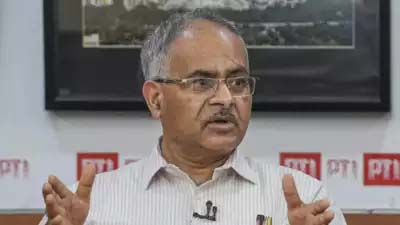The revised edition of the NCERT Class 12 Political Science textbook avoids mentioning the Babri Masjid directly, instead referring to it as a “three-domed structure.” The rationale behind this change, according to NCERT’s director, is to prevent the potential for teaching about events such as riots and demolitions, which could possibly incite violence and despair among students.
In the updated version, the section discussing the demolition of the historic mosque has been condensed from four pages to two, and significant details from the previous edition have been omitted.
During an interaction with PTI, Dinesh Prasad Saklani, the director of the National Council of Educational Research and Training (NCERT), defended these alterations, stating that adjustments to textbooks are routine during annual revisions and should not be cause for alarm.
Addressing inquiries about modifications regarding references to the Gujarat riots or the Babri Masjid demolition, Saklani questioned the necessity of teaching such contentious topics in school textbooks. He emphasized the importance of fostering positive attitudes in students rather than exposing them to potentially divisive or distressing subject matter at a young age.
Saklani further argued against criticisms of the changes, asserting that the focus of education should not be on instilling negative emotions like hatred or violence. He pointed out that similar controversies do not arise regarding the absence of references to events like the 1984 riots in textbooks.
The revised textbook now centers on the Supreme Court’s verdict permitting the construction of a Ram temple at the site of the demolished structure, emphasizing its widespread acceptance in the country. It also highlights the recent consecration of the Ram idol at the temple, which occurred earlier in the year.
Saklani reiterated the goal of creating positive citizens through education and rejected accusations of bias or politicization in the curriculum. He emphasized the importance of updating educational materials to reflect both ancient and recent developments, in line with the National Education Policy (NEP) 2020.
The ongoing revisions to NCERT textbooks aim to align with the latest educational standards and research findings. This includes adjustments to topics such as ancient DNA studies and debates over the identities of historical civilizations like the Harappans and the Vedic people. Additionally, certain sections detailing the achievements of Mughal emperors have been removed in this latest round of revisions.




